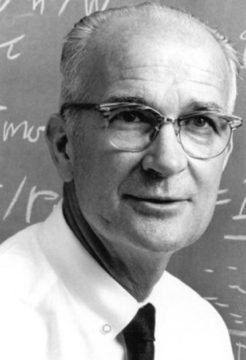by David Kordahl

Most people who know about William Shockley are likely to describe him as a eugenicist, though it’s a question of taste whether they present this aspect of his character before or after they call him the father of the transistor. The first full-length Shockley biography, Broken Genius: The Rise and Fall of William Shockley (2006), by Joel N. Shurkin, made sure, from its title onward, that readers would understand that there was something deeply wrong with Shockley as a human being, despite his scientific achievements. Shurkin went so far as to describe Shockley’s life as a tragedy, and named the three sections of Broken Genius with a pseudo-Grecian heaviness: Moira (fate), Hubris (pride), and Nemesis (retribution).
Well, given Shockley’s late-in-life focus on human “dysgenics,” who could disagree? It turns out that Bo Lojek, an engineer and the author of a new study, William Shockley: The Will to Think (2021), could disagree—and for similar reasons to why many of us, in recent years, have taken issue with the cancellation of one or another of our problematic faves. “The issue with William Shockley,” Lojek writes, “is that his scientific achievements outweigh by far any of his views we might see as objectionable.” Throughout his book, Lojek hints he’s not so sure that Shockley’s views are worthy of censure, either—but more on that in a bit.
For those readers who are unfamiliar with Shockley, it might be helpful to recap the standard view of Shockley as a sort of villain, the view that is presented by Shurkin in Broken Genius, before considering the revisionist, heroic Shockley that Lojek gives us in The Will to Think. Read more »
